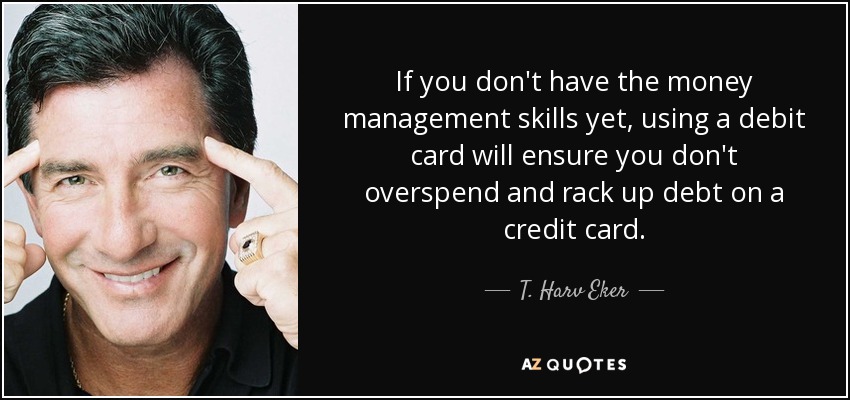
Debit and credit cards are everywhere. While most of us understand the basics of each, there are some very important features that differentiate the two. And maybe even some benefits you didn’t know about. Ultimately, which is better – debit cards or credit cards?
Debit cards - Some debit cards offer rewards like cash back or discounts at some stores. However, debit card reward programs have become fairly rare since the government placed new restrictions on the fees banks can charge for their debit cards.
Credit cards - Credit cards offer more generous rewards. There are credit card reward programs that can help you earn airline miles, cash back or statement credits, and other benefits. If you’re able to use credit responsibly, these rewards can end up saving you hundreds of dollars every year. Also, look for additional benefits like car insurance when you rent a car and extended warranties on some purchases.
The better choice: credit cards
Credit
Debit cards - Debit cards don’t offer an opportunity to borrow money in an emergency. If you have a large unexpected expense, such as a car repair, a debit card won’t give you access to extra funds. This could force some to liquidate investment accounts to cover an immediate need, versus having the option to finance the expense for a couple of months.
Credit cards - For those who can use a credit card responsibly, it will help build your credit score. Paying your bill in full (and on time) each month and not carrying a large balance on your card will help improve your credit profile. The length of your credit history on an account matters though – so even if you pay on time, it won’t matter much if you consistently open and close accounts, or just open too many. In fact, these behaviors will actually hurt your credit score.
Although you can be rewarded for building and maintaining good credit, you can also expect to be punished if you develop bad habits, such as missing monthly payments or rolling over large balances. These and other actions will likely hurt your credit score, making it harder to qualify for new loans.
The better choice: credit cards, when used responsibly
Fees
Debit cards - With debit cards, over-drafting your account is a risk. There are plenty of reasons why it may happen – whether it’s overspending or a check may not clear as quickly as expected. While some debit cards reject a purchase when you have insufficient funds, others overdraft your account, which carries a steep fee. According to a 2014 survey by Bankrate.com, the average overdraft fee is over $30. This penalty typically applies to every purchase you make when you have insufficient funds, so if a couple days pass before you notice, you could have easily racked up hundreds of dollars in fees.
Credit cards – In addition to a possible interest expense, some credit cards charge a sizable annual fee which may not be worth it for all consumers. Doing a quick analysis to calculate the value of the benefits (if non-cash) or how much you would need to spend to recoup your fee can help you decide.
The better choice: this one really depends on the individuals’ spending habits
Debit cards - Debit cards also have worse protection against theft than credit cards. If you don’t report the theft within 2 days, you’re liable for up to $500 of the stolen funds. If it takes you more than 60 days to notice the problem, you could be liable for the entire theft. Even if you are reimbursed by the bank, you’re still without the stolen cash while the claim is processed, which could leave you unable to meet your obligations for weeks. With cyber theft on the rise, this is a significant disadvantage for debit cards.
Credit cards - Credit cards offer much better protection against theft than debit cards. If your credit card is stolen, the most you’d be liable for is $50. As mentioned earlier, fraud monitoring and subsequent protection is a very important feature.
The better choice: credit cards
Sticking to your spending plan
Debit cards - Since debit cards are connected directly to your bank account, it can help some over-spenders stay on track, as they’re limited by the cash in their account and not the credit limit given by the credit card company. This can help some people stay within their means, as they can only spend what they have now, not what they expect to have next month when the bill is due.
Credit cards - When you make a purchase on your credit card, you are receiving a loan from the credit card company, instead of dipping into your cash reserves. This sometimes leads to overspending, and credit card debt can be difficult to overcome. If you don’t (or can’t) pay off your entire balance each month, you will be charged interest. According to a 2015 survey by Bankrate.com, the average variable credit card rate is almost 16%. If you consistently carry a balance, the interest expense will negate most of the benefits of a credit card, and likely indicates there may be other financial problems at play.
The better choice: this one also depends on the individuals’ spending habits
The verdict: credit cards
When it comes to choosing debit or credit, your choice does matter. If you’re comfortable using credit, this is often the better option given the added security, rewards, and ability to build your credit score. No matter which type of card you choose, being financially responsible, and living within your means is sure to pay off.









No comments:
Post a Comment